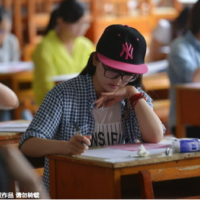Singapore Examines Sabbaticals for Teachers
Singapore’s Ministry of Education is debating options to give teachers sabbaticals to recharge themselves and gain new perspectives and skills. Singapore teachers say they are exhausted managing the increased demands placed on them in response to the pandemic, including responding to parents after school hours. Education Minister Chan Chun Sing said, “I do not think that our teachers are afraid to work hard. But in working hard, they must be given a sense of agency that they are in control, that they are doing things with conviction.” The Ministry has already taken a number of steps to support teacher well-being, such as building additional days off into the school calendar, providing free mental health counseling services, and using surveys and regular school administrator check-ins to gather feedback on their workloads and stress levels. Read more at TODAY.

Quebec Introduces New Civics Curriculum

Quebec Education Minister Jean-François Roberge announced that the province will replace its ethics and religious culture curriculum with a new curriculum focused on culture, citizenship, dialogue and critical thinking in order “to respond to the challenges students face today,” including domestic violence, divisive effects of social media and racism. The new curriculum will teach students about the culture of Quebec; prepare them for citizenship by learning about self-respect and respect for others, freedom of expression, and Quebec’s democratic and juridical institutions; and focus on ethics, dialogue and critical thinking as students consider core social values. “Living in a democracy is not about never disagreeing, but about being respectful when there is a disagreement,” Roberge said. The province will pilot the new curriculum for primary and secondary students in 2022 and will implement it in 2023. For more, see The Montreal Gazette.
U.K.’s New Education Secretary to Consider Longer School Day
Britain’s newly appointed education secretary will look into keeping students in their classrooms a half hour longer every day. Some lawmakers see it as a way to make up for pandemic-caused losses and improve learning even after the pandemic. Education Secretary Nadhim Zahawi, who started the job on the first of the month, told lawmakers he’d like to see all schools in the country move toward a six and a half hour day. He’s been impressed with “some excellent examples” of schools that have already done that. There’s pushback though. A top opposition lawmaker and an educator’s union have warned that keeping kids in school longer could burn them out and keep them from extracurriculars. Whether longer school days become a standard or not, there will be more money for short-term help for struggling students. The head of the U.K.’s treasury bowed to pressure late last month and committed another £1.8 billion (US$2.4 billion) for education catch-up programs.

China Aims to Build Apprenticeship-Style Vocational System

China’s State Council announced ambitious guidelines this month to overhaul the country’s vocational education system. The goal is to launch a state-of-the-art, dual track pathway with students pursuing both academic and job-based learning opportunities modeled on the German approach. The system should be in place by 2025, but efforts will continue to modernize it and align it with future industry needs until 2035. Priority will be given to developing pathways in emerging industries of high need, such as renewable energy, artificial intelligence, and advanced agriculture. The move comes as China’s manufacturing productivity has experienced sharp declines in the past several years, raising concerns about the number of students pursuing bachelor’s degrees who are unwilling and unable to find work in advanced manufacturing. Read more at Bloomberg News.




